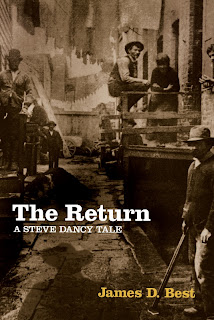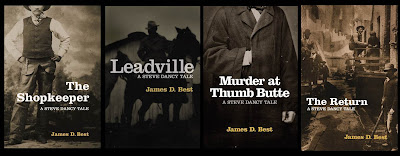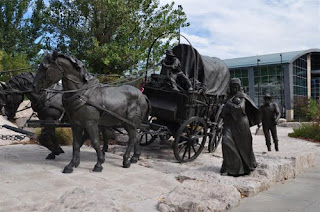Last post I wrote that Mark Twain, Owen Wister and Wells
Drury portrayed Westerners as particularly fond of pranks and practical jokes.
Here is a tale Drury related in his Virginia City memoir titled An Editor on the Comstock Lode.
Rich mining towns attracted all sorts of people, including
entertainers. Supposedly, a ham actor named O’Neil arrived at Pat Holland’s
Music Hall begging for a job. Holland was known as a gentle practical joker,
but would “never think of doing anything more serious than breaking a man’s
leg.” He asked O’Neil if he could dance. After a brief audition, Holland
decided to “work him for a game.”
“Have you ever tried Professor Morse slippers?” Holland
asked.
“Never heard of them,” O’Neil responded.
“They’re a pair of electric slippers and we offer a prize if
you can wear them without dancing. There are few who can wear them without
cavortin’ all around the stage. If we could find a man who could stand it, we
could win a barrel of money ‘cuz the men’d all bet against the game. Ye’ve a
mind to try it.”
O’Neil agreed. After the slippers were strapped to his feet,
Holland kept telling his stage manager to increase the current, but O’Neil
never felt a thing. Finally, Holland ordered his man to “Jam it all on.” Still,
O’Neil never flinched.
“Can ye do it?” Holland asked.
“Don’t ya call this doin’ it?”
“Ye’re right! Now for ropin’ in the huskies. Tomorrow we’ll
win the majority of the money on the eastern slope of Mount Davidson, and ye
shall have half of all we win.”
The next day posters were spread all over town announcing
the challenge. The Music Hall was
standing room only that evening. After several preliminary acts, O’Neil was
introduced to a roaring crowd.
“Gents, ye see before ye a stranger who proposes to show ye
that he can wear Professor Morse slippers for five minutes without jumpin’
around,” Holland announced. “If anybody wants to gamble on the proposition,
he’s my Injun.”
The hall was in pandemonium, with everybody holding up $20
gold coins. Holland consulted with his partners and announced that bets would
be limited to $1,000, so the crowd needed to consolidate their wagers. A
stakeholder and clerks were brought on stage and soon stacks upon stacks of
gold coins weighted down the tables. Finally, over $10,000 had been wagered and
O’Neil was getting visibly excited at the possibility of winning half of the
stake.
A committee was appointed from the crowd of onlookers to
remove O’Neil’s boots and put the slippers on his feet. O’Neil began to brag, “I could walk across
the great American desert with them slippers and never make a skip.”
“Turn on yer steam!” an engineer shouted.
O’Neil walked around the stage with nary a skip. At the four
minute mark, O’Neil shouted, “I’ve only a minute longer, and I’d like to bet
$1,000 I can make it. I’ll call it two thousand!”
About that time, O’Neil yelped and danced and shrieked and
jumped. “Take ‘em off!” he screamed.
The crowd of miners yelled and whooped.
Holland had the electricity turned off, and O’Neil gradually
recovered from his ordeal. He was pulling on his boots when Holland emerged
from backstage with a navy six-shooter.
Cocking the pistol, Holland yelled, “Villain! Ye’ve ruined
me. I’ve a notion to murder ye!
“No! Please don’t shoot!”
“Out of my sight. Git!” Holland yelled as he fired into the
ceiling.
O’Neil ran for his life, knocking several people down who
were hanging around the stage.
Holland made $500 off admission fees and all of the wager
money was returned the rightful owners ... who had all been in on the prank.








.jpg)

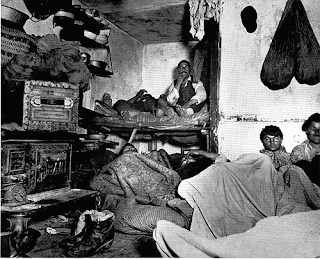



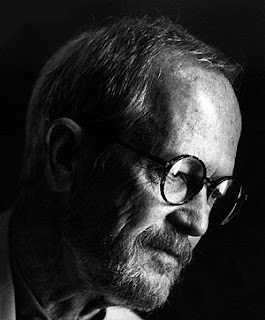
.jpg)


